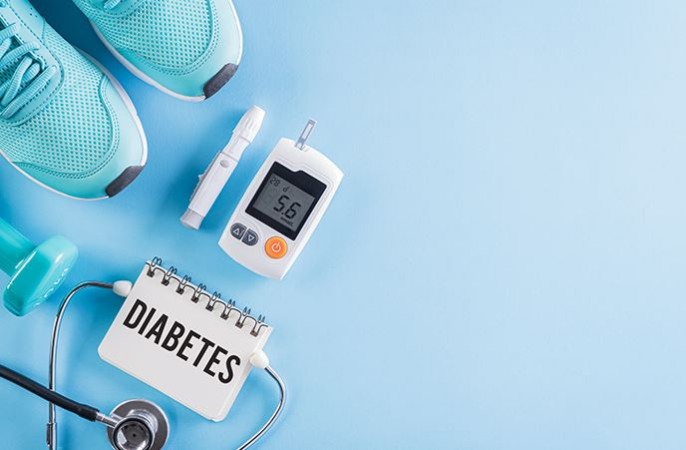
Diabetes is a chronic medical condition that requires careful management of blood sugar levels. Controlling blood sugar levels is essential for individuals with diabetes, as uncontrolled diabetes can lead to various health complications. Diet and lifestyle play a significant role in managing diabetes, and it is crucial to make informed choices to maintain stable blood sugar levels.
Dietary Choices for Diabetes Management:
One of the key aspects of managing diabetes is maintaining a balanced diet. It is recommended for individuals with diabetes to consume a diet that is low in carbohydrates and saturated fats while focusing on protein intake. Several studies have shown that a protein-rich diet can help stabilize blood sugar levels without significantly affecting insulin response.
Excessive Water Consumption:
Diabetes patients often experience increased thirst and frequent urination. This is due to the body's attempt to eliminate excess glucose from the bloodstream through urine. Medical advice for diabetes patients often includes increasing water intake to help regulate blood sugar levels. However, it is essential to strike a balance, as excessive water consumption can have adverse effects on individuals with diabetes.
The Dangers of Overhydration:
Changes in Urine Color:
Diabetes patients who consume excessive amounts of water may notice a change in the color of their urine. Normally, healthy urine appears pale yellow. However, in individuals who overhydrate, the urine may become clear and colorless. This excessive clarity can indicate overhydration and the potential for dilutional hyponatremia, a condition where blood sodium levels become dangerously low.
Risk of Hyponatremia:
Overhydration can lead to a condition called hyponatremia, where the concentration of sodium in the blood becomes too low. Hyponatremia can cause symptoms such as headache, nausea, and confusion. Severe cases can even lead to seizures and coma. Diabetes patients should be cautious not to dilute their blood sodium levels by consuming excessive amounts of water.
Increased Urine Output:
Consuming more water than the body needs results in increased urine production. This continuous flushing of excess fluids from the body can lead to a decrease in blood glucose levels. For diabetes patients, this may result in hypoglycemia, a condition characterized by low blood sugar levels. It is essential to monitor the frequency and volume of urination to avoid excessive fluid loss.
Depletion of Electrolytes:
Overhydration can lead to the loss of essential electrolytes, such as potassium and sodium, through increased urine output. The imbalance of electrolytes can cause muscle weakness, cramps, and irregular heart rhythms. Diabetes patients should be mindful of their electrolyte levels, as these play a vital role in overall health and blood sugar regulation.
Symptoms of Overhydration:
Excessive water consumption can lead to symptoms such as headache, dizziness, and nausea. These symptoms may be mistaken for other diabetes-related issues. It is important for diabetes patients to differentiate between the symptoms of overhydration and those of high or low blood sugar levels.
While adequate hydration is essential for overall health, diabetes patients should be cautious not to overconsume water. Excessive water intake can lead to several adverse effects, including dilutional hyponatremia, electrolyte imbalances, and increased urine output, which can disrupt blood sugar regulation. It is crucial for individuals with diabetes to strike a balance between staying hydrated and avoiding overhydration to ensure their overall well-being and diabetes management.
In summary, diabetes patients should consult with healthcare professionals to determine their optimal water intake, taking into account individual factors such as age, activity level, and climate. Maintaining a healthy lifestyle, including a balanced diet and appropriate fluid intake, is essential for effectively managing diabetes and preventing complications.
Can dengue really be cured by papaya leaves? Know the truth in this matter
Why sugar is not being controlled despite avoiding food and taking medicines, know the reason
How to know whether it is meningitis or normal fever? Be careful in time, otherwise...